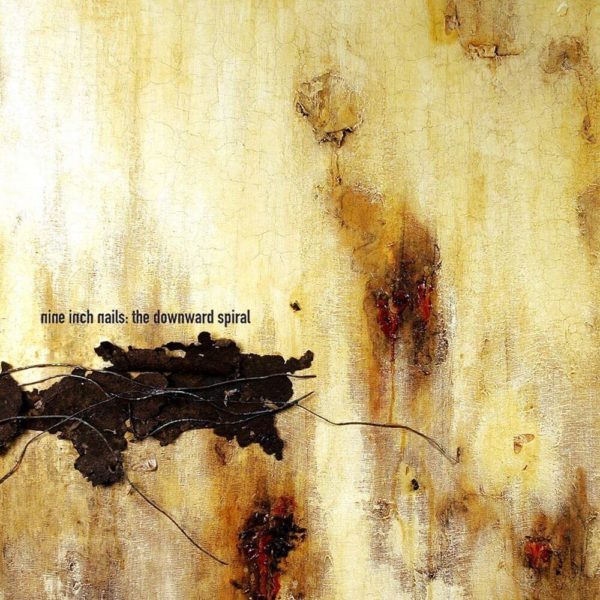

When thinking about the genre of industrial music, one may instantly imagine the ever-evolving and unabashedly unique project, Nine Inch Nails. The instantaneous connection of this behemoth artist to the industrial music genre as a whole makes perfect sense. Nine Inch Nails bridged this style of music to mainstream audiences with their pop-tinged choruses while staying true to the mind-bending electronic and hardcore elements.
The Trent Reznor — led project demonstrates a pivotal moment in the history of industrial music because, upon the project’s inception, the genre began to incorporate more heavy synthesizers, distorted guitars, and aggressive vocals. Taking inspiration from groups pioneering the genre, such as Ministry and Skinny Puppy, Nine Inch Nails took sonic concepts from these bands and found a way to make them more accessible to listeners unaware of the genre. Audiences of rock, punk, hardcore, and electronic music flocked to Nine Inch Nails as they blended these sounds together, creating a style of music that was unparalleled to anything else being made. To this day, Nine Inch Nails is forever embedded as one of the most influential artists in all industrial music history.


Looking back through Nine Inch Nails’ discography, there are many significant records that cement their contribution to industrial music. However, the 1994 record, The Downward Spiral, continues to be a moment in NIN’s history that has musicians and music fans returning to often because of how much it pushed the genre to the forefront of the music scene at that time. Celebrating its 30th anniversary in March, The Downward Spiral is a 14-track opus that combines sonic elements of hardcore, electronic, metal, and other genres while conceptually tackling themes of self-destruction and harm, as the narrator of the record reaches his eventual breaking point.
The two leading singles from the record, “March of the Pigs” and “Closer,” encapsulate the complexity of instrumentation the genre tends to embody while also finding commercial success through its catchy hooks and melodic harmonies. “March of the Pigs” is an abrasive neck-breaking tune that has Reznor vocally firing on all cylinders, drenched in distortion, screaming of destructive ideas. Riding a similar BPM to any punk-rock song from the ’80s, “March of the Pigs” feels more like a sprint rather than a march with its speedy drum pattern and disorienting heavy guitars. It’s a song that does not leave any room for the listener to breathe, but in the best way possible.
The rather provocative single “Closer” is a bit groovier and more mellow than the previous track, its sensual warbly synths and tingling hi-hats prominent throughout the entire duration of the song. Reznor’s vocals feel very distant but still punch through with incredibly bold and haunting lyrics like the hook, “I want to fuck you like an animal.” The single has since been the overall blueprint of Nine Inch Nails’ distinct sound and is recognized as one of the strongest tracks of their discography, even being placed at #42 on Pitchfork’s “Top 200 Tracks of the 1990s.”
As a whole, The Downward Spiral is dark, ominous, and unsettling at times. Due to the record sparking so much controversy when it was initially released regarding its cynical lyricism and gloomy instrumentation, The Downward Spiral continues to be studied and praised as a legendary staple in industrial music even 30 years later. The record’s influence can be seen in a myriad of areas in music in the years following, from different genres and artists of all kinds, such as HEALTH, Filter, Rob Zombie, Death Grips, and many more.
HEALTH, a Los Angeles-based trio with a career spanning almost twenty years, has cited Nine Inch Nails to be a heavy influence on their ominous, goth-inspired sound. The group often use pulsating synths, blaring guitars, and dark, depressive lyricism layered in vocal effects. Known for their collaborative projects, the group was able to work with Nine Inch Nails on the single, “ISN’T EVERYONE” back in 2021. The track includes a sluggish, sinister groove, Reznor’s prominent vocal stylings, and HEALTH’s lavish avant-garde instrumentation. “ISN’T EVERYONE” is a song that can easily slide right into The Downward Spiral tracklist, with lyrics alluding to death and loneliness. The pairing of both music projects works effortlessly together, as HEALTH suggests that collaborating with Nine Inch Nails was a bucket list moment stating, “It’s fucking Nine Inch Nails. That speaks for itself. You don’t need a clever quote to encapsulate it.”
In an interview with mxdwn, HEALTH bassist, John Famiglietti, talked about collaborating with different artists and how the process varies with each musician. Having a wide range of collaborations from artists of different genres such as Lamb of God, Poppy, JPEGMAFIA, and Soccer Mommy, the collaboration with Trent Reznor is still held in the highest regard. Famiglietti explains, “There’s sort of a production math problem putting these bands together. You know, are you going to be Nine Inch Nails? No, you’re not gonna.” Out of all the artists HEALTH has had the opportunity to work with, Nine Inch Nails continue to be a project leaving a long-lasting impression of seamless creativity and unequivocal professionalism.
Even artists who came before Nine Inch Nails and paved the way for other musicians in industrial music have demonstrated their immense appreciation for being cited as an influence. Lead member of the legendary industrial metal outfit Ministry, Al Jourgensen, said in response to being praised by Reznor and Filter’s Richard Patrick, “We just do what we do and I’m glad that it’s noticed and I’m glad that it inspires people. I’m hoping HOPIUMFORTHEMASSES inspires a whole new generation to do things slightly different than the industry norms.”
Reznor has always seemed to have the mindset of acknowledging his musical influences, but has pushed forward to discover his own sound rather than fully mimicking what’s worked in the past for other artists. In an article from SPIN originally published in 1992, Reznor reflects on artists like David Bowie and Led Zeppelin saying, “I’m not going to have a band that tries to sound like that because it’s been done.”
He goes further, describing industrial music at the time saying, “I think my affiliation with so-called industrial bands now is, I like the energy. I always liked the fact that it was electronic, but it wasn’t Thompson Twins. It wasn’t where Devo went with it. It was something that was kind of cool.”
With this ideology at such an early stage in Nine Inch Nails’ career, it demonstrates Reznor’s persistence to create something truly unique and refreshing in the world of industrial music, which is how The Downward Spiral came to be such a monumental feat in the genre.
Filter, another industrial rock/post-grunge project fronted by Richard Patrick, has also expressed deep admiration for Nine Inch Nails. Patrick, who was a touring guitarist with Reznor from 1989 to 1993, recently reunited with Nine Inch Nails during a concert in Cleveland, Ohio. Patrick reflected on the reunion, saying, “The Nine Inch Nails reunion was out of this world. It was absolutely the greatest time I ever had.”
When asked if there were any future plans with NIN, Patrick shared that he is open to the opportunity but is “totally satisfied” if the Cleveland show was the last time they performed together. “That was an amazing moment. And, you know, if it’s closure or something like that, if that’s the last time I ever get to be with Trent or whatever, so be it.”
While admirers and collaborators are all optimistic for whatever the future holds for Nine Inch Nails, Reznor is a bit more skeptical. In an interview with Rick Rubin, Reznor shared that “the importance of music — or lack of importance of music — in today’s world, from my perspective, is a little defeating.”
He continues by saying, “as a 57-year-old man — music used to be the thing, that was what I was doing when I had time. I was listening to music. I wasn’t doing it in the background while I was doing five other things, and I wasn’t treating it kind of as a disposable commodity.”
Although the music listening landscape has changed immensely since The Downward Spiral due to the internet and streaming services, Reznor still finds excitement in other aspects of creating music, like film scores. “I think that’s where some of the excitement of composition in film has thrust me into places I wouldn’t be with my band. It’s made me learn and be in awe of what music is and how powerful it is and how much there is to know about it and how much I don’t know about it.”
So though it seems Reznor is okay with placing Nine Inch Nails on the backburner to pursue scoring films, there is still the underlying hope that there is some gas in the tank for another NIN project. And this hope isn’t a complete shot in the dark.
On March 8, 2024, the 30th anniversary of The Downward Spiral, Reznor shared some sentimental thoughts regarding the record on social media. “I just spent an hour listening to this time capsule of what 28-year-old me had to say, and it still excites me and breaks my heart. Be kind to yourselves. Hope to see you soon.”
That last line of the post is enticing and rather cryptic. Could Reznor be hinting at an upcoming anniversary tour or a new Nine Inch Nails album? Only time will tell.
No matter what the future holds for Nine Inch Nails, the imprint that The Downward Spiral has left on industrial music is undeniable. There is a reason why the record continues to linger in listeners’ ears even 30 years after its release, as well as being crowned #122 on Rolling Stones’ “The 500 Greatest Albums of All Time” list. The Downward Spiral is haunting, menacing, and overall captivating with its ferocious electronic elements, intense metal allusions, and provocative lyricism. As a music fan, it is always important to celebrate one’s predecessors while keeping eyes and ears forward, anticipating the genre’s benevolent future.
Photo Credit: Raymond Flotat
